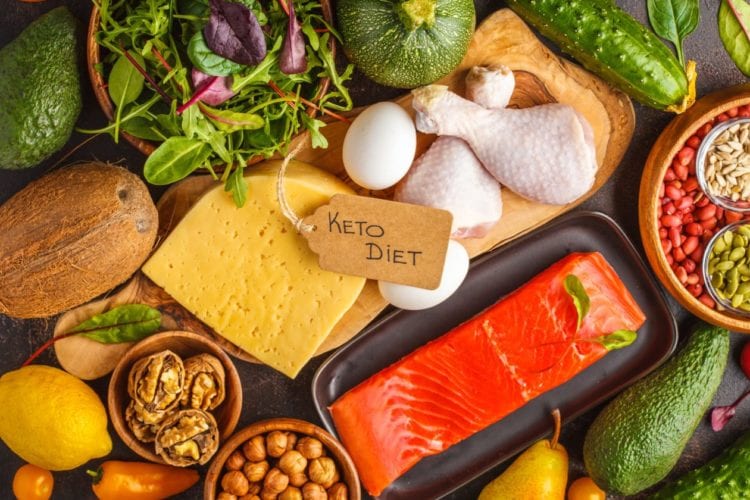Can the Keto Diet Impact Fertility?
To keto or not to keto?

For those looking for a quick weight loss miracle, the ketogenic diet may seem like the perfect solution. It has become such a popular diet trend that it’s no surprise that it is one of the most asked-about nutrition topics at RMA of New York. Many celebs including the Kardashians, Halle Berry and Lebron James have been keto devotees to help them reach their health and weight loss goals.
Simplistically, the ketogenic diet is a meal plan that incorporates predominantly high fat foods with limited carbohydrates (below 50g) and a moderate amount of protein. This diet was originally used to treat children with epilepsy. As opposed to the body using glucose (sugar) as its primary fuel source, when done correctly, the diet changes the body’s metabolism by using ketones (fat). The body is in a ketosis state. The major appeal to this diet is that weight loss can occur quite rapidly. Given that being overweight or obese can negatively impact one’s chances of getting pregnant or staying pregnant, the keto diet may seem like an appealing tool for women looking to lose weight and boost their fertility at the same time. So what are the possible pros and cons to this diet?
Potential Benefits
- Fat is super filling and satiating and as a result, you may eat less overall food.
- May accelerate short term weight loss
- Potentially can help reduce levels of insulin and improve glycemic control. Reduced insulin levels have been linked to improved fertility
- Possibly better regulate levels of reproductive hormones (such as luteinizing hormone (LH), follicle stimulating hormone (FSH) and testosterone)
- Can include many healthy sources of fat such as olive oil, seeds, nuts, flaxseeds and avocados
Potential Concerns
- Since this diet is super restrictive, it may cause added (unnecessary) stress to women who are struggling to get pregnant. It creates more guilty/shameful feelings towards foods that could potentially benefit one’s body (hello fruit!)
- An unpleasant side effect of this diet plan includes experiencing flu-like symptoms that are called ‘keto-flu’ (gastrointestinal distress, vomiting and fatigue). This is common when starting the plan
- All fat is not created equal and many people choose fats from highly saturated fat foods (packaged keto products, bacon, sausages, heavy cream, butter). The recommendation is to keep saturated fats to no more than 7% of your daily calories due to the link of saturated fat to heart disease
- The keto diet eliminates approximately 60% of foods we typically consume. Less variety can make it more challenging to stick to long term and the lack of variety may make one’s microbiome less diverse
- Packaged keto foods are generally less nutritious
- Keto diets are often lacking in fiber and vegetables, which can help prevent constipation, diarrhea and can also positively impact one’s blood sugar control
- Eating a high fat diet can be taxing on one’s digestive tract as fat can be hard to metabolize and break down. This can lead to chronic fatigue
- Keto diets can lack crucial vitamins and minerals that are essential for overall health including potassium and vitamin C
- It is challenging to maintain this diet long term and if used for short term benefits, it may lead to even more weight gain when carbohydrates are introduced back into one’s diet
- Lack of quality research for women, especially on fertility
Unfortunately, science doesn’t have the real answer as to whether keto is a healthy option for women trying to get pregnant. It could be the rapid weight loss seen with this diet plan that could help women achieve more fertility success. This diet has been linked to hormone and metabolism benefits, but the medical world hasn’t quite figured out all of the specific details of this effect. So is this a healthy and sustainable plan? The jury is still out whether following a ketogenic diet is the recipe for long term weight loss and higher rates of fertility success. Until then, listen to your body and try to focus on a balanced, variety-rich meal plan filled with colorful vegetables and fruits, lean proteins, nuts/seeds, olive oil and lots of water.
Dietary consulations and nutrition counseling is provided to all RMA of New York patients at no cost. Since every body is different, scheduling an appointment to discuss your goals is encouraged.
